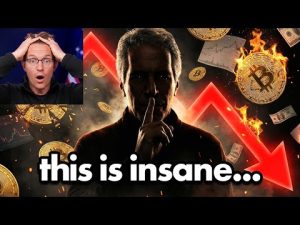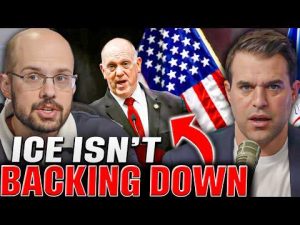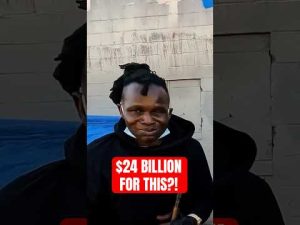**Denver’s Mayor Johnston: Willing to Go to Jail for Illegal Immigration?**
Denver’s Mayor Mike Johnston has caused quite a stir recently by boldly stating he isn’t afraid to face arrest in protest of Donald Trump’s mass deportation plan. This declaration has drawn the attention—and a few chuckles—from those who follow national politics. Johnston claims that Trump’s approach is illegal and lacks compassion, but what does this really mean for the city of Denver and the broader national conversation on immigration?
In recent years, the United States has been grappling with an ongoing border crisis. Millions of individuals have entered the country, leading to a slew of issues that local communities are trying to address. These range from financial burdens on taxpayers to disturbing increases in human trafficking and gang activity in cities like Denver. Johnston’s willingness to take a stand on this matter illustrates the rift between those who advocate for open borders and those who believe in the rule of law.
Julio Rosas from Blaze Media emphasized that Johnston’s comments were predictable, and they mirror a growing trend among Democrats to side with those who are in the country illegally, often at the expense of U.S. citizens. During the recent election, many voters expressed their discontent with what they see as skewed priorities from elected officials who seemingly overlook the needs of their own constituents. As more and more citizens feel that their rights are being sidelined, the political landscape may be shifting in ways that politicians, like Johnston, might not fully comprehend.
The situation escalates further with Tom Homan, a key figure in immigration enforcement, warning that states ignoring the federal mass deportation plan might face serious repercussions, including loss of federal funding. This bold stance raises the question: Will states continue to stand their ground against federal authority, or will they reconsider their approach in light of potential penalties? The dynamics of this tug-of-war could shape not only the future of immigration policy but also the politics of state and federal relations.
As the dust settles from recent elections and the dust kicks up from Johnston’s reckless protests, it’s vital to remember that many Americans are ready for substantial changes to immigration enforcement. Many voters want action and are supportive of strong measures to ensure that the law is upheld. They have voiced their opinions at the ballot box, and one can only assume they expect their elected leaders to heed this message. But will leaders like Johnston be willing to put citizens’ needs first, or will they continue to push agendas that prioritize those here illegally?
In the midst of all this tension, it’s clear that both sides are preparing for a showdown. With positions becoming increasingly polarized, it remains to be seen how this will evolve. Will Mayor Johnston’s bravado lead to a Philadelphia-style rebellion in which cities openly defy federal directives? Or will the pressure from federal authorities and public opinion eventually shift the tide? Whatever the outcome, the stakes are high, and the American people will certainly be watching.







